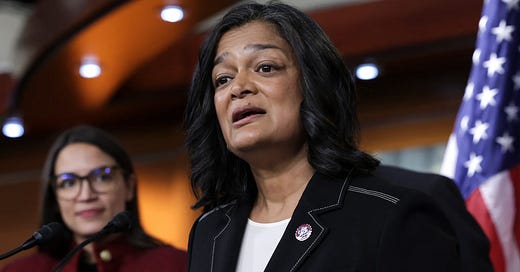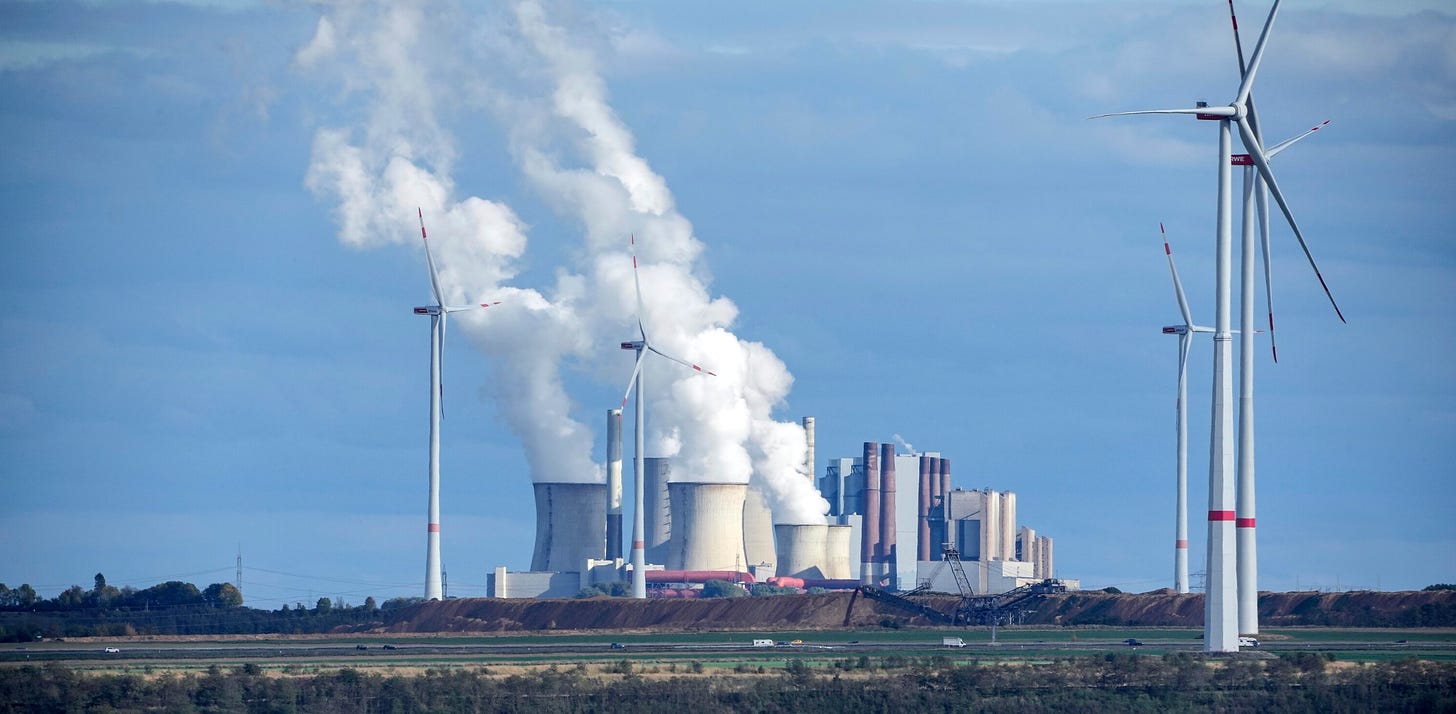Earthling: Give Ukraine diplomacy some respect!
Plus: 167 broken climate promises, “social recession” worsens, how some US sanctions help Putin, and more!
This week saw the release of a letter signed by 30 House progressives that called on President Biden to explore a diplomatic resolution of the Ukraine war. This week also saw the retraction of the letter within 24 hours of its release.
The incident seemed to leave pretty much everyone in Washington aghast—some at the nerve shown by these progressives in advocating diplomacy at a time when that’s unpopular, some at the loss of nerve shown after they discovered just how unpopular it is.
The blowback the 30 Democrats got wasn’t without its logic. Though the letter included all the standard caveats—it supported arming Ukraine and opposed any peace deal unacceptable to Ukraine—it could be taken as a sign that American support for the war is waning (especially if viewed alongside House Minority Leader Kevin McCarthy’s recent suggestion that a Republican-controlled House won’t give Ukraine a “blank check”). And if Putin senses that US backing of Ukraine’s military effort is fragile, he might be emboldened to fight on without contemplating compromise. So even if you’re hoping Biden will push for a negotiated settlement, you still might think the letter unwise.
What’s more, one could make the case that now is a bad time to freeze the battlefield action with a ceasefire. This fall Ukraine has seemed to have the wind at its back, and there’s reason to hope for more success before winter. In particular, Ukrainian troops may retake the city of Kherson, leaving Russia with no land west of the Dnieper River and leaving Putin’s bargaining position that much weaker.
On the other hand, there is reason to think that by winter Russia’s battlefield position will be firming up, as the mobilization it just conducted brings reinforcements. And it’s quite conceivable that Russia could then seize the momentum and, in the coming year or two, use its deeper manpower reserves and substantial arsenal to gain control of much more Ukrainian territory than it has now.
In any event, there’s no compelling reason to think that 2023 will bring dramatic battlefield gains for Ukraine.
But the larger point is this: What happens if there is such dramatic progress? What happens if Russian troops are pushed all the way back to the pre-February boundaries—and maybe even beyond them? Then, with Putin more desperate, and worried about his grip on power, there will be only more cause to worry about him taking potentially catastrophic risks, up to and including a nuclear strike. And according to President Biden, we’re already closer to Armageddon than we’ve been since the Cuban Missile Crisis.
Like it or not, this is the predicament we’re in:
If the pendulum swings in Russia’s favor, Ukraine will lose so much land that it will wish it had sought a peace deal now. But if the pendulum swings very sharply in Ukraine’s favor, the chances of catastrophe—nuclear war or a much wider conventional war—grow. And if there’s no big shift in either direction—if something not far from a stalemate is in the cards—then continued fighting will accomplish little other than killing and maiming people, while bringing, each day, some chance of unforeseen escalation.
Sure, this menu of three options—either lose ground or gain catastrophic risk or muddle along pointlessly and perilously—is a little simplistic. You can imagine additional menu items featuring various shades of gray.
But the people who shouted down these 30 progressives owe it to us to at least fill in these blanks. What end of this story do they envision that leaves Ukraine much better off than it is now? And how likely is that outcome—and how much escalatory risk does it involve? What exactly are we buying with the blank check that most people in the foreign policy establishment seem intent on giving Ukraine?
In a pro-diplomacy piece published this week in Foreign Affairs, Samuel Charap and Miranda Priebe of the Rand Corporation spell out the assumption they see as underlying our current policy trajectory: “The United States and its G-7 partners appear to think that Moscow will accept complete territorial loss without provoking a wider war or using weapons of mass destruction.” It’s time for people who support the current policy to either explicitly defend that assumption or describe a happy ending that doesn’t depend on it.
The UN reported that just 26 of 193 countries have followed through on an agreement made last year to strengthen their plans for fighting climate change. China and the US, the world’s two largest polluters, were not among these 26, though they did take action to reduce greenhouse gas emissions.
By 2100, the report says, the planet is slated to warm by more than 3.6 degrees Fahrenheit above pre-industrial levels. The Paris agreement of 2015 aimed to hold the warming to 2.7 degrees. Max Bearak writes in the New York Times that “war in Europe, an international energy crisis, global inflation, and political turmoil” are to blame for lackluster climate action.
But, in the silver lining department: The International Energy Agency, an intergovernmental organization based in Paris, said this week that the rising energy prices caused by the Ukraine War will accelerate the adoption of renewable energy technologies.
This week the New York Times explored the question of what went wrong with President Biden’s high-profile trip to Saudi Arabia in July—the one where he fist-bumped famously murderous Crown Prince Mohammed bin Salman in hopes that this would open the spigots on Saudi oil, only to find months later that the spigots didn’t open.
Ever since the trip’s failure became clear—early this month, when OPEC announced a big cut in oil output—the basic question has been: Did Biden fail to get explicit Saudi commitments in return for his helping to rehabilitate the disgraced Prince he once vowed to treat as a “pariah”? Or did the Saudis make commitments and then break them?
The latter, according to The Times’s sources.
Foreign policy analyst Daniel Larison—who before Biden’s Saudi trip warned that the Saudis would see Biden as a “supplicant pleading for increased oil production”—isn’t shocked. This week, writing in his Eunomia newsletter, he said the US should cut military assistance to the Kingdom and stop thinking of it as an ally. “The Saudi government can’t be trusted, but then we should have known this for a long time.”
US-Russia nuclear tensions are said—by, among others, President Biden—to be higher than at any point since the Cuban Missile Crisis of 1962. But according to Anatoly Antonov, Russia’s ambassador to the US, things today are in one sense even worse than they were then. Washington and Moscow had a “continuously operating confidential channel” of communications that helped avert Armageddon in 1962. But, Antonov says, that channel no longer exists.
Our Twitter thread of the week highlights the importance of clear communication on nuclear matters. Nuclear expert Stephen Schwartz details an incident that occurred 60 years ago this week, during the crisis, and is equal parts comical and terrifying. The incident started when a guard at Duluth Air Force Base thought he spotted an intruder—and suspected Soviet sabotage as a prelude to nuclear attack. Within hours, nuclear-armed American planes were preparing for takeoff. So, who was the intruder?







